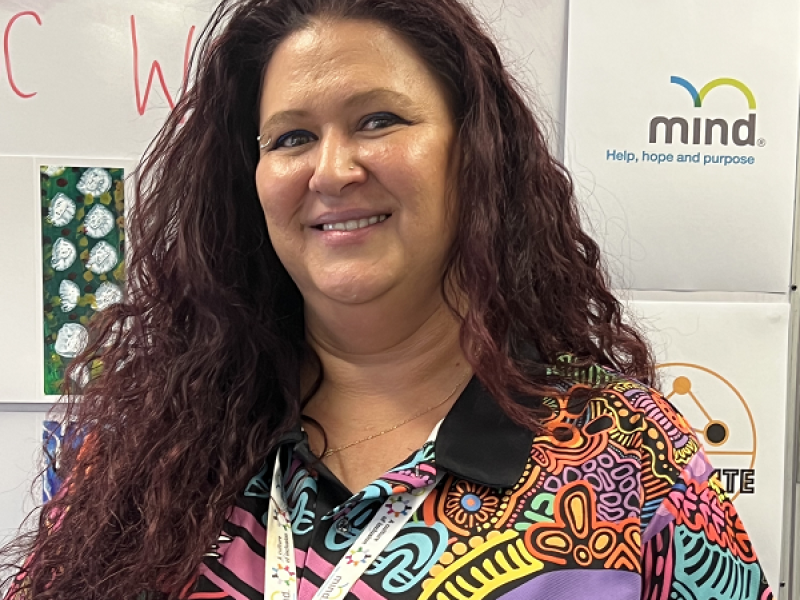Katie Spasojevic is a First Nations Community Mental Health Practitioner at Haven Mooroopna - a long-term social housing and mental health support service near Shepparton, Victoria.
Katie is a proud Yorta Yorta woman and says understanding the cultural identity and history of Aboriginal and Torres Strait Islander people is crucial to their mental health and wellbeing.
The region has Victoria’s highest population of First Nations people outside of Melbourne, so it has been a priority for Mind, who staff and operate The Haven Foundation residences to have a dedicated First Nations Community Mental Health Practitioner there.
Ms Spasojevic provides mental health and wellbeing support to all residents at the service, helping them learn life skills, like confidence and connection with others, so that they can build a healthy lifestyle and work toward their recovery goals.
She says understanding where you have come from is important for First Nations people because it shapes who you are as a person.
“Our identity tells the story of where we are from and where our roots lie. My ancestors have defined who I am now, and through history and heritage you can find other family members, stories and the history behind our lives and identities,” Ms Spasojevic said.
“I’m still learning about my culture, because there is a lot to learn. Part of our stories come from generations before us, so it’s important to keep our stories going. As First Nations people, we need to know what our ancestors did before us so we can continue their stories and set life goals for ourselves.”
Ms Spasojevic says part of her role is being an active member of community, connecting with Indigenous organisations in the local area and supporting residents to complete life administration tasks, such as paying bills and medical paperwork.
She is motivated to do this work because of her own lived experience of mental ill-health.
“I struggled a lot with my mental health, and I secluded myself because I was ashamed,” Ms Spasojevic said.
“I want to be a person who has been there and show others you can get out the other side. Don’t be ashamed to experience mental ill-health because it is part of you and your journey as a person. I want to be there to support others and facilitate change in one’s life.”
First Nations Australians have significantly higher rates of mental health concerns than the general Australian population, but Ms Spasojevic says they often don’t reach out for support.
“Addiction, embarrassment and it can feel like you are being judged by others – these are barriers for us,” Ms Spasojevic said.
“In First Nations culture we tend to close ourselves off. When we experience bad thing sometimes we don’t know how to break the cycle. We don’t talk about things or seek help; we just go into our shell.
“As a support worker I try to overcome this by being active in the community and letting people know support is available, being present in the family home and understanding their experiences, and by just listening. Listening, communicating and providing a safe, non-judgemental space is important.”
Providing staff with the skills needed to support First Nations people is one of the key commitments in Mind’s Innovate Reconciliation Action Plan (RAP) (2.4 MB) – the crucial next step in our strategic vision for inclusive and innovative mental health services.
If this article raises concerns for you, please call Lifeline on 13 11 14. Aboriginal and Torres Straits Islanders can also call 13 YARN (13 92 76) a 24/7 national crisis support telephone service staffed by Aboriginal and Torres Strait Islander peoples.
If you would like more information about Mind services near you, please contact us via Mind Connect or phone: 1300 286 463.
